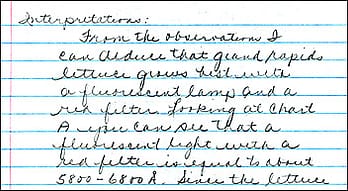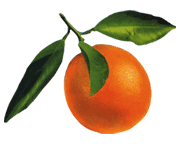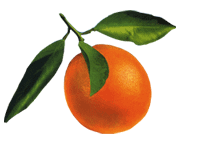15 Oct Cursively Speaking
When handwritten essays were introduced on the SAT exams for the class of 2006, just 15 percent of the almost 1.5 million students wrote their answers in cursive. The rest? They printed. Block letters.
Margaret Webb Pressler
The Washington Post
I have always enjoyed writing. By writing I mean making marks on paper.

Sample of my handwriting from my high school biology notebook. Classmates said I wrote “like a girl.” Click image for larger version.
I have detailed memories of learning cursive in the fourth grade. I wanted handwriting just like my classmate Robin Hoenig. She had the best penmanship in the class. And I studied and emulated everything she wrote. It was beautiful, so beautiful I even asked her to sign my name on my Junior Fireman’s membership card. Of all the ephemera from my childhood, that was one of my most cherished possessions (now lost amongst the memories boxed in our attic). Crazy when you look back on it.
The Washington Post reported last week that teaching good handwriting skills, teaching any handwriting is close to extinction. Apparently, there are more important things to learn, like typing. My ten year old can type almost as fast as I can but sometimes it’s difficult to read what she’s written.
It’s not surprising that cursive is taking a back seat to other proficiencies. There seems so much more to learn these days and at such an accelerated pace. My wife and I are constantly amazed how early our children are learning basic skills: reading in kindergarten when we learned to “see Dick and Jane run” in the first grade; multiplication in the third grade and algebra in the fourth. I was shocked when I spied my eldest reading Langston Hughes in the first grade! It made me feel old and outdated. I wondered what she’d be reading when she was ten, the French Structuralists? (Luckily, my daughter, now that age, is more interested in fantasy and Pokémon rather than Foucault.)
We are being told there just isn’t time for handwriting instruction. Other tasks are now much more important. For example, months are spent in the second grade prepping children to take state standardized tests. The Post article suggests we are about to lose an art form:
“Scholars who study original documents say the demise of handwriting will diminish the power and accuracy of future historical research. And others simply lament the loss of handwritten communication for its beauty, individualism and intimacy.”
I remember practicing my handwriting for hours. It was one of the earliest memories of learning to control something in my life. Perhaps it was an early indicator of my future in art: an interest in form and its function. I was chagrined when my friends suggested I wrote “like a girl.” A putdown in the archaic 1950s and 1960s, I did it anyway. Even today I get these comments (interpreted now as a compliment).
In high school my father made me spend one summer taking shorthand and typing (when typing was an elective and desktop computers were in a distant future). He wanted me to be prepared for the rigors of college. I was the only boy in these classes. Despite my arguments about all the Nobel Prize winners who made it through college without learning shorthand, it was a futile effort. And I was a very obedient son. It was embarrassing but with Dad’s edict, there was no way out. I can still write my name using Gregg shorthand but the rest has been lost. I never used it in college but I could use it now during back-to-back meetings at work.
The immediacy of typing and reading words on a screen encourage quick and abbreviated thoughts. Paragraphs diced into smaller bits make essays easier to read online. Blog posts are shorter than short stories. I do it all the time.
I can’t remember the last time I received a handwritten letter in the mail. I have bundles of letters from my parents, written to me when I was away at college. When I look at them, their handwriting brings immediacy to their words. With each letter I reconnect with who we were. It’s as if I am hearing their voices. Will my children save all my emails and IMs and look back on them with the same sense of connection with me? Will they even be able to recognize my handwriting?
Ok, I’ll admit it. I’ve worked hard at my beautiful writing. It was my first artwork and it probably will be my last. My girls practice their cursive nightly at our house. Beautiful essays in their composition books will someday become their attic memories. Whatever the schools decide, we’re making sure an art form will be passed on.
- [ Handwriting ]




Shane Guymon
Posted at 10:52h, 17 OctoberI too have many fond memories of learning to write. For some reason I treated writing as drawing. I remember having my newsprint paper with two lines running horizontally across the page with a dotted line running horizontally through the middle. To the left at the beginning of each line would be a printed version of the letter of the alphabet I was supposed to recreate 10 times in both lower case and upper case. So I attacked this assignment as I would any other drawing. So now I have a very unorthadoxed way of writing, which many people love to point out to me whenever they watch me write on a blackboard. On most letters I start at the bottom as apposed to the top.
Jeff
Posted at 12:21h, 17 OctoberI am left-handed. Many of us learned to write by twisting our hand over and around in order to put pen to paper (see photo #3 on this demonstration page to see how I hold the pen).
Since I have written this way all my life it seems completely natural to me and I don’t think twice about it. But if I look at someone writing left-handed I always think “Gee, that looks strange.”
And given my technique, you should see me try to write on the blackboard. Chalk (or dry marker) all over my shirtsleeve.
District of Corruption
Posted at 23:14h, 17 OctoberThe fall of literacy leads to ignorance, and eventually the corruption of society. It’s laughable that the War is the most important thing in our politcal world when our children cannot read. Corruption is abound.